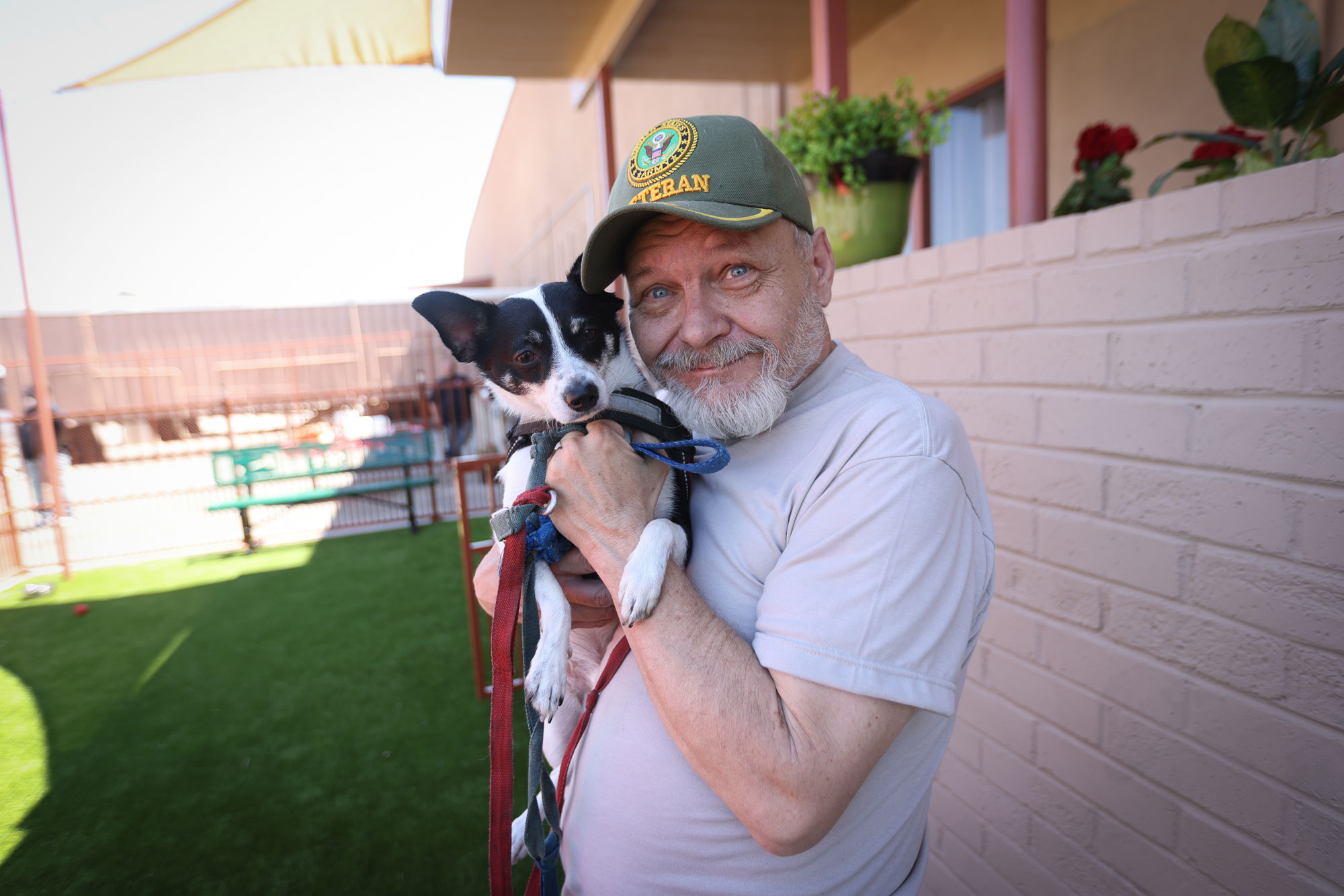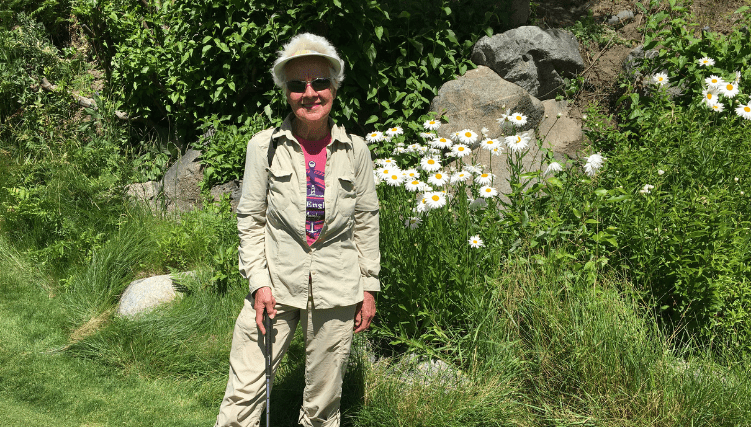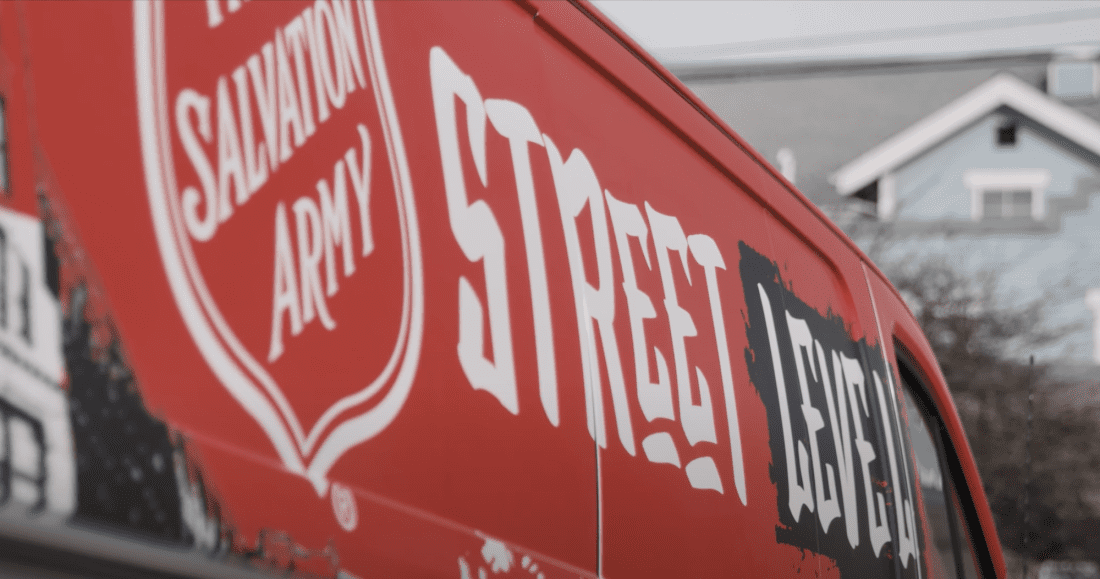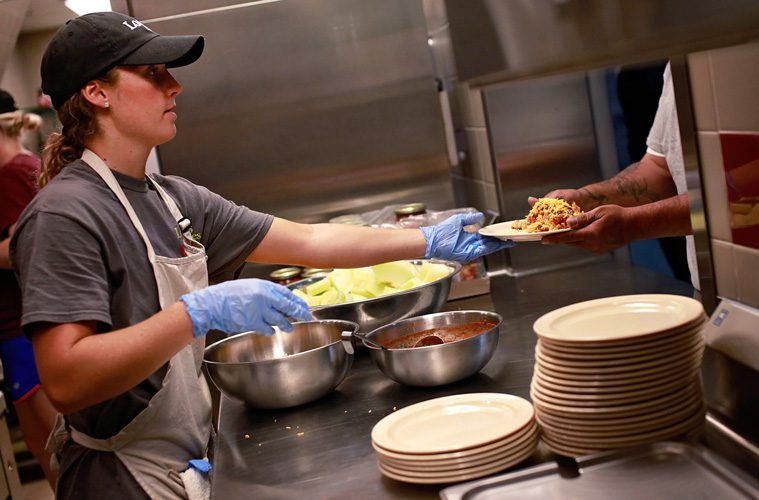An in-depth look at how The Salvation Army helps survivors of domestic violence.
To prepare herself for working at The Salvation Army West Women’s and Children’s Shelter (The West) in Portland, Oregon, each day, Domestic Violence (DV) Advocate Carol Hendrix said she puts on her “shelter thinking cap,” a goal-oriented thought process.
“We’re just trying to get to a goal. That’s what helps every day, asking clients ‘what’s your goal today?’” she said. “That’s what guides you and gets you started for the day.”
The West is one of two confidential transitional housing programs The Salvation Army operates in the Western Territory, along with the Hickman House in Seattle, where DV clients can stay housed with their children. Navigating the network of DV services available is “often complex and complicated,” said Justin Moshkowski, Executive Director for Salvation Army shelter services in Multnomah County, Oregon—including The West.
“We like to be the shortcut for them to get those services and to connect their needs with what’s available,” he said.
By offering confidential emergency and transitional shelters, The Salvation Army’s clients can sleep safely and work toward independent living while healing emotional scars through mental and spiritual counseling. For many, finding permanent housing away from an abuser is a primary goal.
For others, it’s working through the trauma with a counselor or connecting with legal support to gain child custody or a restraining order. No matter what a client’s goal is, assigned DV advocates like Hendrix are there to help clients understand the system and guidelines in place to acquire resources and services available to help them heal.
The Salvation Army provides immediate assistance to victims of domestic violence, putting them on the path to independence in shelters designed for women and children escaping domestic abuse.
The advocates work one-on-one with clients to move through specific, self-directed goals after addressing immediate medical and safety concerns. At The West, Moshkowski said he considers the advocates the “heartbeat of the program” because they provide immediate support to those in distress who call the facility’s 24-hour crisis line.
For Hendrix, answering crisis line calls is like “being on the frontlines of battle,” where advocates have to remain calm and provide an immediate plan of action for the caller.
After performing or receiving a Safety and Stabilization Assessment (SSA), a county-wide nonprofit collaborative that assesses danger levels and needs for shelter, advocates then use a collaborative bed tracker that lists available bed openings within the shelter system to determine the best option for a client’s specific situation.
Safety planning, support groups, job search assistance, educational classes and child services are also provided in addition to referrals for mental health and addiction counselors and financial vouchers to cover necessities like transportation and rental and utility assistance.
“It can wear on you mentally…you want the best for clients, but then it’s their life…I can only do what I can do as a worker and they can only do what they can as a client to keep themselves going,” Hendrix said.
When working with a client in distress, Hendrix said she will often try to reshape the conversation by saying, “Let’s start again. We’re alive and we’re breathing, right?”
“It’s very upsetting sometimes when you hear people’s stories,” said Lori Mackowski, also a DV advocate at The West. “You’re always worried about people…while trying to keep them encouraged, hoping that everybody can start to move into something more safe and stable.”
Domestic violence affects millions of people in the U.S. each year. According to the Centers for Disease Control and Prevention (CDC), 1 in 3 women and 1 in 4 men have experienced some form of physical violence by an intimate partner. Yet, those seeking help still encounter judgment based on harmful stereotypes, making it more difficult to access the tools needed to heal.
“The public always thinks, ‘well, why don’t you just leave?’” Mackowski said. “People think it’s simple, but it’s so complicated…Leaving is difficult. There are so many reasons why people don’t just leave.”
A woman in a situation of abuse may not leave because she still loves her abuser, Mackowski said. “She doesn’t leave because she doesn’t want to live on the streets…She doesn’t leave because she doesn’t want to get her children taken away from her.”
Ciara Murphy, Northwest Divisional Director of DV Programs, added that while many people think leaving a relationship ends the violence, that isn’t true in most cases.
“Many people don’t realize when they leave the relationship, that’s when the real violence starts,” Murphy said. “There’s no leaving…Particularly if you share children with that person, you’re constantly coming into contact with them.”
To leave an abusive relationship is “a process where people have to test the waters and see what resources are out there if they need to break up the family,” Murphy said. “For most people, in the interest of keeping their family together, they will try everything before they leave.”
Whether they stay or go, the danger is real. Roughly 1 in 5 homicide victims are killed by an intimate partner, according to the CDC. Further, more than half of female-identifying homicide victims in the U.S. are killed by a current or former male-identifying intimate partner.
– Food services
– Social services, including clothing, shelter and medical services
– Emergency communications
– Donations management, encouraging cash donations as the best and most flexible way for the public to help
– Cleanup and recovery for the long-term
– Training to prepare for emergency events
Clients who experience poverty are also at higher risk for “extreme violence” due to the lack of affordable resources “to get up and go to exit the relationship early,” Murphy added. “It’s shocking, but it’s really commonplace.”
Violence in relationships can also manifest in patterns “used to gain or maintain power and control,” including “any behaviors that frighten, intimidate, terrorize, manipulate, hurt, humiliate, blame, injure, or wound someone,” according to the United Nations.
“We see it all here, unfortunately,” Murphy said. “From people who are suffering verbal and emotional abuse to people who’ve experienced recent strangulation to people who’ve been shot.”
She emphasized the need for advocates to be grounded in a thorough understanding of domestic abuse, how it manifests and its impacts on both adults and children. “A lot of what we do is just being relatable and kind to people who are in a bad situation,” Murphy said. “We want to practice a very non-judgmental, open communication style and a trauma-informed approach to everything.”
For one woman, who moved into the West Women’s shelter with her two children in May 2021, that intention is felt. “Being here has really helped me find hope for my future,” she said. “From the first day, I just felt relieved and safe. That’s been the biggest thing, being able to feel safe.”
And even on days when advocates reach their “personal capacity,” Mackowski said there’s always another advocate who can “swoop in” to help. “It’s really great the way everybody supports each other,” she said.
After working as an advocate for more than 20 years, Hendrix said at the end of each day, there’s one thing that continues to resonate with her: “To love beyond measure,” she said. “That’s what I’ve learned.”
Do Good:
- There is a place for you in The Salvation Army. See more in our annual print edition, “A Place of Belonging.”
- Start your day with goodness. Get on the list for Good Words from the Good Word and get a boost of inspiration in 1 minute a day with a daily affirmation from Scripture sent straight to your inbox. A pep-talk for the day. A boost of inspiration and comfort. A bit of encouragement when you need it. Get on the list and start receiving what you need today.
- See how The Salvation Army fights disaster.

















